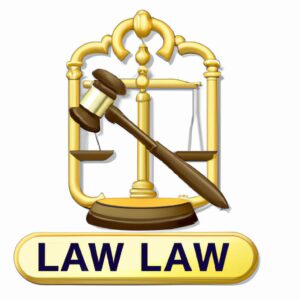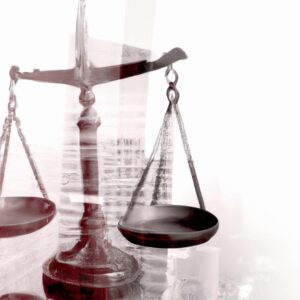
what is a joint revocable living trust
A joint revocable living trust is a legal document that allows a couple to combine their assets and manage them together while alive. It provides flexibility and protection for both parties.
Estate Law New York Page 39

A joint revocable living trust is a legal document that allows a couple to combine their assets and manage them together while alive. It provides flexibility and protection for both parties.

Have you ever wondered why people say “Godspeed” when wishing someone well on a journey? This age-old phrase dates back to the 15th century when it was used to invoke God’s protection and guidance. Let’s explore the origins and significance of this timeless expression.

Selling inherited property can be a daunting task, filled with emotions and logistical challenges. Understanding the process and seeking professional guidance can help navigate this complex journey with ease.

A tryst is a secret meeting between lovers, while will refers to determination or intention. Combining the two creates a powerful notion of meeting with purpose and resolve, a blend of passion and determination that can create profound connections.

Navigating the legal waters of granting power of attorney can be confusing. Do you need a lawyer to help you? Let’s explore the benefits and drawbacks of seeking legal advice for this important decision.

Trust wills and estates offer a secure way to ensure your assets are distributed according to your wishes after you pass away. By setting up a trust, you can have peace of mind knowing that your loved ones will be taken care of.

When attending a funeral, choosing appropriate attire is important to show respect. Opt for somber colors like black, navy, or gray. Keep accessories minimal and avoid flashy or revealing clothing. Remember, it’s a time to pay respects, not make a fashion statement.

Estate sale planning involves careful organization and consideration of personal possessions. From sentimental items to valuable collectibles, a well-thought-out plan ensures a smooth transition of assets.

A letter of executorship is a legal document granting authority to an individual to carry out the terms of a deceased person’s will. It outlines the executor’s responsibilities and provides them with the necessary powers to handle the estate.

Are you worried about the high costs of care home fees? Don’t fret! By planning ahead and exploring options such as setting up trusts, gifting assets, and purchasing long-term care insurance, you can take steps to protect your hard-earned savings. Let’s dive into some creative strategies to avoid the burden of care home fees.

When it comes to distributing assets in a will, the terms “per capita” and “per stirpes” can make a big difference. Understanding the implications of each can ensure that your loved ones are taken care of according to your wishes.

Lost the deed to your property? Don’t worry, we’ve got you covered. Follow our simple step-by-step guide to track down your property deed and get back on track with your paperwork in no time.

A partition lawsuit can arise when co-owners of property disagree on its division. This legal action can help resolve disputes and ensure a fair outcome for all parties involved.

Understanding the typical attorney fees for probate can help clients navigate the legal process with confidence. From hourly rates to flat fees, there are various pricing structures to consider when seeking legal assistance for probate matters.

Many individuals wonder whether a survivor’s trust is revocable or irrevocable. Understanding the distinction between the two can help ensure that your assets are protected and distributed according to your wishes.

A legal life estate is a type of ownership interest in real property that allows a person to live in or use a property for the duration of their life. This form of ownership ensures that the property will pass to a designated individual or entity upon the holder’s death.

Prepare for the future by using a will preparation checklist. This handy tool ensures all your assets and wishes are in order, giving you peace of mind.

A formal will is a legal document that specifies how a person’s assets should be distributed after their passing. It ensures that one’s final wishes are carried out with legal certainty and clarity.

When it comes to selling an inherited home, there are several factors to consider. From navigating emotional ties to the property to understanding tax implications, it’s important to approach the process with care and diligence.

Discover the world of offshore trust companies, where confidentiality and asset protection are paramount. Learn about the benefits and potential pitfalls of utilizing their services to safeguard your wealth.

Creating a foreign trust can be a complex process, but with careful planning, it can offer significant benefits. From choosing the right jurisdiction to selecting reliable trustees, here are some key steps to consider when setting up your trust.

The average time to settle an estate can vary widely depending on factors such as the complexity of the assets, the presence of disputes among beneficiaries, and the efficiency of the executor. However, most estates can expect the process to take anywhere from several months to a few years.

A register of deeds is a vital government office that maintains property records, ensuring the legal ownership and transfer of land. This office oversees the recording of deeds, mortgages, and other related documents to protect property rights.

As the executor of an estate, selling a car can be a daunting task. From determining the value to finding a buyer, there are many steps to navigate. Let’s explore how to successfully sell a car as the executor of an estate.

Discover the power and benefits of dynasty trusts, a long-term estate planning tool that can protect and grow your wealth for future generations. Learn how to set up and maximize the potential of these trusts for your family’s financial legacy.

While the terms “personal representative” and “executor” are often used interchangeably, they actually refer to different roles in estate administration. Understanding their distinct responsibilities can help ensure a smooth handling of an estate after a loved one passes away.

Discovering a loved one’s will can be a challenging task, but with the rise of online resources, it’s now possible to access wills through certain platforms. Learn more about the process of finding a will online and what steps you can take to locate this important document.

When someone passes away, we are left with a void that cannot be filled. It’s a reminder of our mortality and the preciousness of life. In these moments, we come together to mourn, remember, and honor the one we have lost.

Beneficiaries eagerly anticipate receiving their inheritance, but when do they actually get their money? Understanding the timeline for distribution can help manage expectations during a challenging time.

Navigating custody and visitation agreements can be challenging, but understanding the legalities and best practices can help ensure a smooth process for both parents and children. Here, we delve into the nuances of custody and visitation arrangements.